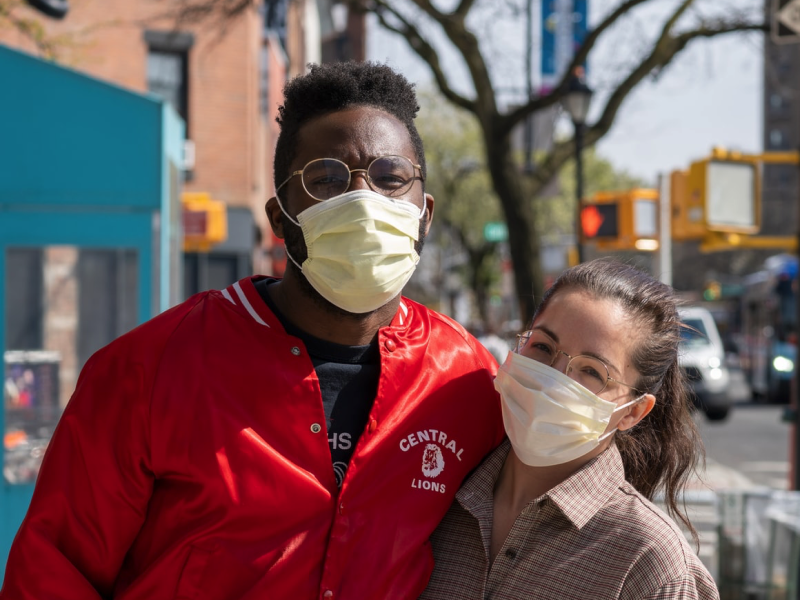Don't abandon your pandemic journal yet: Recording reemergence

Journaling Reemergence
In 2020, pandemic journals were a big topic of discussion, with historians urging people to record their feelings, experiences, and impressions throughout the pandemic. Now, as many prepare to emerge from a life of relative calm during the pandemic, some may wonder whether there’s still value in writing in their pandemic journal. The short answer is, yes.
Historical significance
What is the reasoning behind keeping a pandemic journal in the first place? Starting in the spring of 2020, historians began to urge people to keep journals in order to record the story of the pandemic as it happened. Why not just write about it afterward, you ask? Well, hindsight is 20/20 — and for the purposes of recording actual impressions of the time, that can actually be a hindrance.
When events, feelings, and impressions are recorded in the moment, it gives readers, and ultimately historians, a snapshot of what was really happening. Conversely, when a period is written about after the fact, it’s naturally imbued with perspective. For example, in March 2020, we may have written, “The CDC is urging people not to wear masks.” That comment may be accompanied by the person’s impressions of why that is. But if we wrote about that period now, we might say, “Originally, the CDC told people not to wear masks, which turned out to be ill-advised advice. Months later, they would reverse that advice and urge everyone to wear face coverings anytime they were around people outside of their household.” It would be hard to write about the original advice without imposing our after-the-fact feelings about it on the writing.
Reemergence
Though many people are eager to toss their face masks into the wind and put the pandemic behind them, the truth is, the story is not over yet. Even if the virus were to be stamped out in the coming months, which it may not be, society reemerging from a pandemic — whether it’s with stops and starts or not — is a unique experience that, like the pandemic itself, historians will study in the future. As is evident in numerous writings around the internet, people are finding themselves anxious to reemerge, not only because of their fears of the virus itself, but because of the toll that isolation has taken on people’s social skills and desire to be around other people. For anthropologists and historians, any window into human behavior, emotion, and struggle is key to their work. So, pandemic journals and end-of-pandemic journals are going to be equally important for the future.
How to keep a pandemic, or end-of-pandemic, journal
If you haven’t started your pandemic journal yet, that’s okay. It’s never too late to start recording history. The best practices for any journaling endeavor, including journaling about the pandemic and its end, include:
- Pick a place to do your journaling. This could be a digital space, like Diarly, or it could be a paper journal. Whatever it is, you should commit to putting all of your related writing in that one place, so it’s compiled.
- A lot of people find they’re most successful with journaling when they make a habit of it. That means finding a time that works for you to regularly journal. It could be once a week, once a day, or once a month. Whatever it is, you should stick to a schedule and make a habit of reflecting.
- Don’t limit yourself. Yes, this is a pandemic or post-pandemic journal. But don’t judge your thoughts or tell yourself something you feel called to write about is outside of the reach of what the journal is supposed to be “about.” The truth is that anything that comes to mind for you in the present moment is inherently related to the experiences you’re living through and the time you’re living in. So, don’t feel like you only have to give updates about the news related to the pandemic. It is fine (and a good idea) to use your journal to capture a full picture of what your life is like right now.
What should I do with my pandemic journal?
That’s up to you! Some people keep specific, perhaps-historically-relevant journals but keep them to themselves. Other people donate such writings to places that specifically acquire historically-relevant writings, like libraries, historical societies, anthropologists, sociologists, or other people.
If it’s your desire to share your writing, you should look for such people in your own community and ask whether there are any specific endeavors afoot to collect such writings. Several historical societies around the country are specifically asking people for their pandemic writings. Even if yours isn’t, they may be interested (plus, historical societies are really cool places, with incredible amounts of information about your locale. If you haven’t visited yours, you should!).
